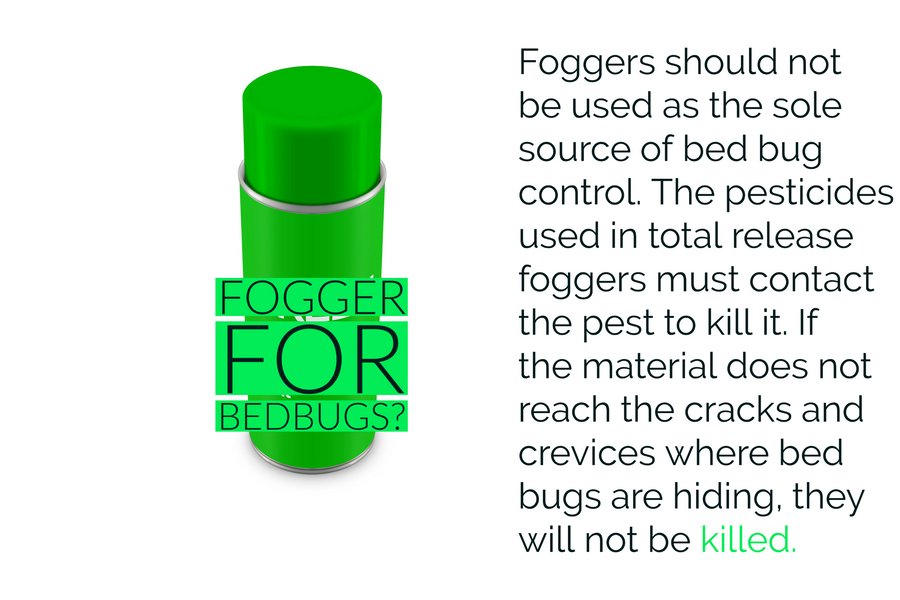The Bed Bug Fogger Dilemma: Why it Can Make Matters Worse

Bed bug infestations can be incredibly frustrating, and desperate times may lead to desperate measures. One such measure that many people turn to is the use of foggers, hoping for a quick and easy solution to their bed bug woes. However, what many fail to realize is that foggers can do more harm than good when it comes to dealing with these elusive pests. In this blog post, we will explore the reasons why foggers can be one of the worst things you can do for bed bugs and why they might end up exacerbating the problem.
The Repellant Effect of Foggers:
Foggers, also known as bug bombs, work by releasing a fine mist of insecticide into the air, with the aim of reaching every nook and cranny where bed bugs may be hiding. Unfortunately, bed bugs have a keen sense of smell, and they can detect these chemicals in the air. As a result, they often scatter and flee to avoid the toxic fog, making it even more challenging to locate and eradicate them effectively.
Turning Minor Infestations into Major Ones:
One of the most significant risks of using foggers is that they can inadvertently spread bed bugs around the home. As the pests disperse in response to the chemical fog, they can find new hiding spots, making it even harder to track them down. This unintended dispersal can lead to the escalation of a minor infestation into a major one, as bed bugs proliferate in different areas of the house.
Ineffectiveness Against Eggs:
Another critical limitation of foggers is their inability to penetrate the protective egg sacs laid by female bed bugs. While the fog may kill adult bed bugs on direct contact, it does not reach inside the egg sacs. As a result, the eggs remain unharmed, and once they hatch, a new generation of bed bugs will emerge, perpetuating the infestation. This explains why homeowners might experience a temporary reduction in bed bug activity after using foggers, only to find the problem resurfacing a few weeks later.
The EPA's Cautionary Stance:
Even the Environmental Protection Agency (EPA) advises caution when it comes to foggers and their efficacy against bed bugs. The EPA recognizes that foggers may not be suitable for dealing with bed bug infestations and highlights the potential risks associated with their use. Instead, they recommend integrated pest management (IPM) strategies, which involve a combination of non-chemical and targeted chemical treatments.
The Way Forward: Professional Help and Integrated Pest Management:
When faced with a bed bug infestation, it is crucial to resist the temptation to use foggers as a quick fix. Instead, consider seeking professional pest control services that specialize in bed bug eradication. Trained technicians can conduct thorough inspections, accurately identify the extent of the infestation, and implement effective treatments that target both adult bed bugs and their eggs.
Conclusion:
While the allure of a simple solution to bed bug infestations might be tempting, foggers are not the answer. Their repellant effect, potential to spread bed bugs, and ineffectiveness against eggs make them one of the worst options for dealing with these resilient pests. To achieve successful bed bug eradication, it's best to consult with professionals and adopt an integrated pest management approach. By combining targeted chemical treatments with non-chemical methods, you can ensure a comprehensive solution that eliminates bed bugs at all life stages, providing lasting relief and peace of mind.



